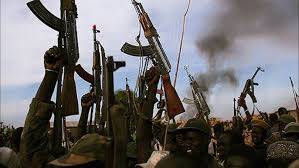Chieftaincy Conflicts in Bawku Halt Campaigns, Escalate Tensions
Ongoing chieftaincy disputes in Bawku have disrupted political campaigns and intensified local tensions, impacting both community life and political stability in Ghana’s Upper East Region. This conflict, which has historical roots stretching back over a century, is a deep-seated rivalry between the Kusasi and Mamprusi ethnic groups, each claiming legitimacy over the Bawku chieftaincy.
The latest clashes in Bawku began with renewed efforts by each faction to assert control over the traditional chieftaincy seat. This has led to numerous violent encounters, leaving dozens dead and hundreds displaced. Although government forces have been deployed to stabilize the situation, these efforts have met with limited success, as local tensions remain high. Several attempts by religious leaders, community groups, and politicians to mediate have proven ineffective, further intensifying fears among the residents.
The timing of this conflict has been especially challenging as it overlaps with Ghana’s political campaign season. With candidates across various political parties hoping to secure votes in the upcoming election, the instability in Bawku has forced them to suspend campaign activities in the area. Security concerns have prompted political leaders to avoid large gatherings, both out of respect for the affected communities and to ensure their safety.
The disruption of campaign activities in Bawku has significant political implications. For local residents, it has hindered their ability to engage in the democratic process, while candidates worry about losing influence in the region. Some citizens feel disillusioned, as the political class has struggled to address or mediate these long-standing disputes effectively.
Beyond political consequences, the conflict has deeply impacted daily life in Bawku. Many residents live in fear of renewed violence, and businesses are suffering as customers and employees avoid central areas. Schools and health facilities have also been affected, with some suspending operations or reducing hours due to safety concerns. The widespread instability is causing severe economic repercussions in the community, stifling development in an already impoverished region.
The government has urged both factions to seek peaceful resolutions, appealing to the historical bonds that unite rather than divide them. However, with no immediate solutions in sight, the chieftaincy disputes in Bawku continue to undermine both political stability and the day-to-day lives of its people. The situation remains volatile, with residents and politicians alike hoping for a peaceful end to the longstanding conflict.



No comments yet
Be the first to share your thoughts!